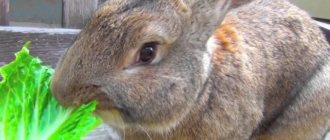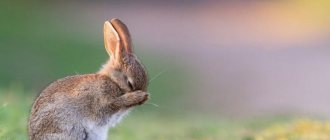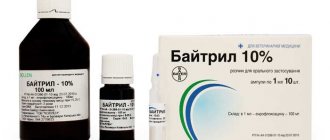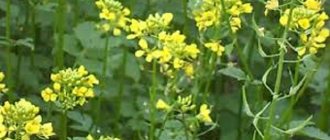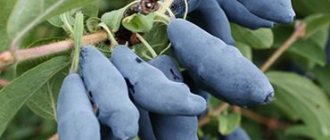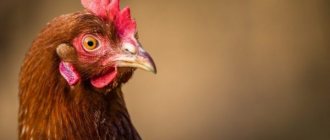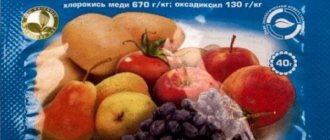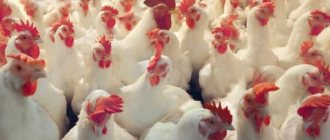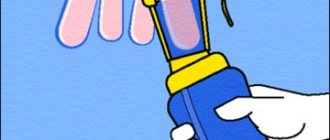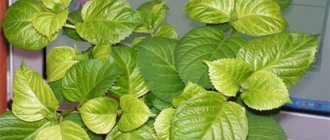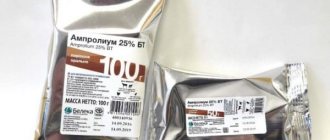Livestock » Rabbits
0
9018
Article rating
Kira Stoletova
Why is iodine given to rabbits? Is this necessary? Experienced rabbit breeders and farmers know that iodine solution serves as the main preventive measure against infectious diseases in animals. It is also used in the treatment of coccidiosis.
Iodine solution for rabbits
It is imperative that female rabbits be given an iodine solution at the end of pregnancy and at the beginning of the lactation period: this way they will receive this useful element with their mother’s milk, which will help preserve the entire livestock.
Causes and signs of coccidiosis
Coccidiosis affects rabbits after weaning.
In addition to external negative factors - temperature changes or dampness, unsanitary conditions, the following feeding errors provoke an outbreak of the disease:
- sudden replacement of hay with green food;
- abuse of root vegetables and vegetables;
- using wet or uncured grass;
- poisoning from weeded weeds, bread, spoiled feed;
- excess proteins due to the supply of cakes, meals, and legumes.
The disease is characterized by diarrhea, which alternates with constipation, loss of appetite, and thirst. The coat becomes unkempt and cramps occur.
Rabbit breeders have adapted iodine preparations to combat coccidiosis. Treatment brings positive results when an antiseptic is used in combination with rational feeding.
For what diseases is iodine used?
The drug is usually used for the treatment and prevention of coccidiosis . This is a common disease among rabbits, caused by protozoan single-celled microorganisms. Animals usually become infected through food.
Coccidia live in the liver and intestines, as a result of which they are quickly destroyed. Coccidia feed on under-oxidized substances. They are always in abundance in the digestive organs. These are leftover food that has not completely disintegrated.
Iodine-based preparations oxidize the nutrient medium of coccidia. As a result, the parasites do not receive the substances they need and significantly reduce their numbers.
Iodine-based preparations are used for the treatment and prevention of many rabbit diseases: ringworm, enterocolitis, dyspepsia, gastroenteritis, pyoderma and others. The solution is used to treat wounds, especially in decorative pets.
Measures to combat coccidiosis
The instructions are silent about the rules for using drugs containing iodine for coccidiosis in rabbits. However, medications containing halogen are used to treat and prevent gastrointestinal diseases of other farm animals. Rabbit farmers have developed schemes to prevent outbreaks of infectious diseases.
It is necessary to know the date of mating of the female in order to start drinking a 0.01% iodine solution a week before giving birth. The approximate water consumption for a pregnant female is 100 ml/day. It is important to exclude other sources of drinking.
The treatment solution is changed daily. The drinking bowl and dishes for preparing the solution should be glass or ceramic, since halogen reacts chemically with metals.
Be sure to read:
What to do if a rabbit has diarrhea, how to treat it so that it doesn’t die.
Watering continues for the first 5 days of lactation. The amount of water consumed doubles as it is used to produce milk. Take a five-day break and resume soldering with a 0.02% solution for two weeks.
Weanling rabbits are given iodine preparations according to the following scheme:
- In the first ten days, young animals are fed a 0.01% solution at the rate of 50 ml per rabbit per day.
- A five-day ventilation period is carried out, during which the iodine solution is replaced with plain water.
- Resume soldering with a 0.2% solution. The approximate daily drinking requirement in the first week is 70 ml, in the second - 100.
If young animals develop symptoms of coccidiosis, they are treated with a 0.2% solution according to the same scheme. In addition to eimeria (parasites), iodine destroys the accompanying microflora. Pathogenic bacteria do not develop immunity.
Why do rabbits need iodine?
Tincture of potassium iodide is used to prevent parasitic infection - coccidiosis in rabbits. This is a dangerous disease caused by coccidia, protozoan microorganisms that attack the intestines and liver. A beneficial environment for their reproduction is the under-oxidized products of protein breakdown accumulated in the body of animals. Iodine is an excellent oxidizing agent; it prevents the development of coccidia and helps prevent disease.
In addition, iodine stimulates the thyroid gland of animals, thereby promoting the normal course of metabolic processes and strengthening the immune system. Iodine is added to the drinking water of pregnant females at the final stage of pregnancy so that newborn rabbits receive this substance along with their mother’s milk. Young animals are given water with iodine to drink according to a certain scheme in order to prevent coccidiosis. This is especially important to do when the baby rabbits are separated from their mother. The solution is prepared strictly according to the instructions so that there is no overdose of the substance. It is poured into the drinking bowl early in the morning, before food is distributed.
Attention! When it is necessary to give iodine to rabbits, there should not be clean water in the cage, otherwise the animals will give preference to it.
Side effects and contraindications
In most cases, with the correct dosage there are no side effects. However, individual intolerance and overdose cannot be ruled out. Rabbits experience digestive disorders - diarrhea, dehydration, yellowness of the mucous membranes. If pathological symptoms are detected, the use of drugs is stopped, otherwise the animal may die.
During preventive and therapeutic soldering, it is necessary to strictly adhere to the diet. The main food is pellets and hay. Root vegetables are excluded from the diet, since the sugars they contain cause fermentation. Green food is limited and fed after drying. Self-heating of the mass in heaps should not be allowed, so the grass is laid out to dry in a thin layer.
A few words about contraindications
The only prohibition on introducing iodine into the diet for rabbits is the detection of hypersensitivity to the drug in the animal. However, most veterinarians agree that this reaction is very rare, and therefore an iodine-containing solution can and should be used to treat eared animals.
We invite you to join our Zen channel and group on VKontakte or Odnoklassniki, where new articles are published, as well as news for gardeners and livestock breeders.
Similar articles:
- Breed overview: Russian ermine rabbit
- Coniferous branches in the winter diet of rabbits
- Should you give zucchini to rabbits?
How to dilute iodine preparations
The required concentration is obtained based on the content of the element in the preparation.
The following medications are used for dilution:
- Iodine tincture 5%: to obtain a 0.01% solution, add 2 ml of the drug to 1 liter of boiled water. To achieve a concentration of 0.02%, 4 ml of tincture is added per 1 dm3 of water.
- Tincture 10%: to obtain a solution of 0.01% concentration, add 1 ml of concentrate to 1 liter of water. To obtain a 0.02% solution, the amount of tincture is doubled.
- Iodinol contains 2% iodine. A 0.02% solution is prepared by adding 1 ml of medication per 100 ml of water.
- Monclavit-1 is a veterinary drug: 0.01% concentration is achieved with a dilution of 1/100; 0.02% - 1/50.
Be sure to read:
Why do rabbits' eyes fester, how to recognize the cause and what needs to be done to prevent them from dying
The liquid is stirred before use. There is no need to prepare the solution for future use. Drinks are changed daily.
Ready-made solutions with iodine
There are several iodine-containing preparations created specifically for feeding rabbits. These are veterinary drugs:
- Poviodon;
- Yodovit;
- Monclavit-1;
- Iodinol.
Poviodon
A Belarusian-made iodine-containing solution is developed for external and internal use. The drug contains iodine in the amount of 2.15 mg/ml. For internal use, Poviodon is diluted in a concentration of 1:10.
This remedy is effective in suppressing many types of bacteria in the body of animals: streptococci, staphylococci, proteus, coccidia, etc. To dilute the drug Poviodon, you need to dilute it in cold boiled water in a ratio of 1:10 (solution and water, respectively).
For rabbits, 0.2-0.3 ml of Poviodine is usually taken for each kilogram of the animal’s weight.
Yodovit
Iodovit 0.1% is widely used to disinfect rabbit cages. More often, the drug is used for external antiseptic measures, but it is also used for sealing rabbits to prevent coccidiosis, although this indication for use is not indicated in the instructions for the product.
Breeders who give Yodovit to rabbits use the following dosage: 1.0 ml of the drug is taken per 1 kilogram of animal. This amount of product is given in pure form or diluted with water (1:2). Desoldering lasts only 1-2 days, twice a day.
Yodovit also exists in the form of tablets, but it is not used for feeding rabbits.
Monclavit-1
Monclavit-1 is similar in action to Yodovit: it is used to disinfect cells and is given orally to rabbits to normalize the digestive tract. Prevention of coccidiosis with Monclavit-1 is rarely carried out, however, it is not excluded.
See also Rules for feeding rabbits with salt, the benefits and harms of salt for animals
For soldering, take a dose of the drug equal to 1.0 ml per kilogram of animal weight. It is not necessary to dilute this drug with water, but it is possible, using a small amount of water (1:1). Give Monclavit-1 2 times a day - morning and evening - for 2-3 days.
This remedy can be used to combat coccidiosis in another way - by treating the nipples of a nursing rabbit. This is how iodine enters the body of recently born rabbits. The solution is sprayed onto the rabbit's nipples using a spray nozzle 2 times a day. This procedure lasts for a week.
It is worth noting that there have been cases when, after spraying Monklavit-1, young animals refused their mother’s milk or it completely disappeared from the rabbit. To avoid such a reaction to the drug, it is recommended to treat 1 nipple of a rabbit for a test and observe the animal’s reaction.
Iodinol
Iodinol is most often used for feeding calves, but it is also effective for rabbits. The drug is used in the following quantity: take 2 ml of Iodinol for each kilogram of animal. This amount of product is diluted in water (1:2) and the rabbits are watered twice a day for 10 days.
Iodine is a means of feeding rabbits to prevent diseases
Iodine is a strong antimicrobial, antiviral, antifungal agent. Iodine preparations are used in veterinary medicine as:
- antiseptics, for disinfection;
- external means of veterinary surgery and gynecology;
- vitamin and mineral substances, as part of various preparations;
- antibacterial agents orally for dyspepsia, respiratory diseases caused by bacteria, skin fungi (ringworm), and viruses.
There are no specific references to the effect of iodine on coccidia (Eimeria) in the scientific literature.
There are no iodine preparations in veterinary pharmacy, especially for rabbits
How to feed rabbits
The intake of iodine solution depends on the age and condition of the animal. For prevention and treatment, different dosages and regimens are used.
Adults
First of all, the rabbits are given water:
- The solution is given from the 25th–30th day of pregnancy. Concentration - 0.01%. Drink 100 ml per day.
- Waiting for the fifth day of lactation (feeding). After this they take a break for 5 days.
- A solution is given again, but more concentrated - 0.02%. The dose is also doubled: 200 ml per day.
- Complete the course after the 25th day of lactation.
The remaining adult rabbits are given iodine as needed - for prevention or treatment. As a rule, adult rabbits are soldered as follows:
- Every six months. The course is two weeks. Concentration - 0.01%. One rabbit drinks 100–200 ml per day.
- For new animals, the prophylactic solution is used for 5–7 days.
- For breeding individuals - 3–5 days before mating.
Baby rabbits
Small animals are also supported with iodine solution. Give when animals are 30–40 days old:
- They begin immediately after weaning from the female rabbit. Water for 10 days. Concentration - 0.01%. Each baby rabbit needs 50 ml per day.
- Break 5 days.
- They give me another 15 days. The concentration is increased to 0.02%. For the first 7–8 days, the dose is 70 ml per animal.
- Small rabbits are given iodine for another week. Everyone is entitled to 100 ml per day.
Females and rabbits consume only the solution in the morning. The containers are filled with plain water only when the animals drink their daily dose of the drug.
How to dilute potassium iodide tincture for rabbits?
The following medications can be used:
- Sulfadimethatoxin;
- Sulfapyridazine;
- Baycox;
- Phthalazol;
- Furazolidone;
- Levomycetin;
- Solikoks.
In this case, it is necessary to strictly follow the breeding rules:
- Sulfapyridazine, Sulfadimethatoxin. Add the medicine to the water in an amount of 0.2 grams per kilogram of the individual’s weight. Over the next four days, take 0.1 grams of medicine per kilogram of weight. The next 5 days - a break, and then repeat the course.
- Baycox. The remedy is quite effective and in most cases completely cures the infection. Rabbit breeders confirm the treatment of advanced cases. Per kilogram of individual weight, 0.2 ml is taken. Sometimes the diluted drug is administered orally (once a day), in a dosage of 10 ml. Be sure to check the instructions and additionally consult a veterinary pharmacy.
- Phthalazol. The drug is often used together with Norsulfazole, which significantly enhances the effect. The affected individual should take 0.3 g of Norsulfazole and 0.1 g of Phthalazole per kilogram of live weight. Treatment with these drugs lasts 5 days, then a five-day break follows, and the course is repeated.
- Furazolidone. A rabbit affected by coccidiosis is given 30 mg of medication per kilogram of body weight. The course lasts one week.
- Levomycetin. The animal is given a solution of Levomycetin in a dosage of 40 g or the drug Sulfadimezin - 150 mg.
The positive effects of such products are confirmed by many experienced rabbit breeders. The fact is emphasized that iodine stops the active development of coccidia and promotes the oxidation of substances not processed by the stomach.
The peculiarities of using other medications can be found out by checking the instructions.
What is coccidiosis in rabbits, history of study
Coccidiosis is caused by coccidia, single-celled parasites. Science has approximately 400 strains, but only a few can exist in a living organism, and each has its own specificity. One species affects the human body, another – animals, the third – birds. 10 species pose a threat specifically to rabbits, and 9 of them have a destructive effect on the intestines, and only 1 on the liver.
The first mention of coccidiosis appeared in 1683. The inventor of the microscope, naturalist Anthony van Leeuwenhoek, managed to discover coccidia, but he soon died without having time to properly study what he had started, and the study of coccidia began several decades later. In 1839, parasites were discovered in the bile ducts of the liver, in 1845 - in the small intestine
Beneficial properties of iodine for rabbits
Coccidiosis in rabbits is the most common cause of death. Moreover, she “mows down” entire batches of young animals and adults. When eating fresh grass, single-celled parasites called coccidia enter the rabbits' body. The parasites are localized in the intestines and liver, destroying organ systems in a short time.
A solution of potassium iodide helps inhibit the development of coccidiosis. The substance prevents coccidia from fully multiplying and feeding.
Many farmers also use iodine solution for the following purposes:
When to give iodine
Rabbits need iodine throughout their lives. But this should be done using solutions of the drug of varying concentrations.
Important! You can start feeding rabbits with iodine from the first days of their birth, since the possibility of infection immediately arises. This can be transmitted to them by feeding a rabbit infected with parasites. Therefore, feeding pregnant females with iodine is mandatory.
You should continue to do this after birth, then the iodine will be supplied to the rabbits along with their mother’s milk. Watering a pregnant rabbit should begin several days before the expected birth date, and end five days after it. After this, you need to take a break of five days. Then the medicinal solution should be given again, gradually increasing its concentration.
Expert opinion
Dobryshev Sergey Anatolievich
Professional rabbit breeder with 30 years of experience
Important!!! For prevention purposes, and especially if cases of the disease are detected in the livestock, iodine solution must be given to adults.
Iodine in water for rabbits dosage for prevention
Nov 15 • Uncategorized • 56 Views • Comments on the entry Iodine in water for rabbits dosage for prevention no
Contents
When novice farmers find out that sometimes they need to give iodine to rabbits, they are surprised, because everyone knows that potassium iodide tincture is not taken orally. It is intended for external use. However, in the case of furry ears, this is not the case - in certain cases, this substance can prevent serious diseases in them. How to properly feed your pets with iodine, and when it is necessary, will be discussed in this article.
Iodine for rabbits
Contraindications
The only caution to consuming potassium iodide is hypersensitivity to it. But, according to veterinarians, such a reaction is extremely rare in rabbits, so do not be afraid to treat your charges in a similar way.
As you can see, iodine is a real salvation for long-eared pets. If you ignore this remedy, you may lose your entire livestock. We hope our article will help you keep your rabbits healthy.
Rabbits are distinguished not only by high fertility, but also by frequent mortality of both young animals and adults. Experienced rabbit breeders use iodine to prepare a solution that helps heal these animals and prevent the development of many diseases in them.
Symptoms of coccidiosis and its varieties
In animals infected with coccidiosis, the incubation period lasts 2-3 days. The disease is divided into 2 types: hepatic coccidiosis and intestinal coccidiosis. General symptoms: anemia, convulsions, retardation in physical development, inflammation of the mucous membranes of the nose and eyes, jaundice, intestinal upset.
Signs of hepatic coccidiosis
The clinical picture is often blurred, so the animal can be sick for a long time (up to 50 days). A sick rabbit gradually loses weight, eats worse, and becomes apathetic. Yellowness is noticeable on the mucous membranes and in the eye area. Reduces the level of red blood cells and hemoglobin, an imbalance of carbohydrate and protein metabolism appears. The body is exhausted and the rabbit dies.
Signs of intestinal coccidiosis
Rabbits are affected en masse. The main signs of the disease: disheveled hair, bloating, stunted growth, frequent diarrhea. Gradually, the animals develop swimming movements of their paws and convulsions.
There are several drugs that effectively fight the disease
How to prepare and give “Blue Iodine” to rabbits
A folk recipe for making jelly or an aqueous solution called “Blue Iodine” for the treatment of intestinal disorders in rabbits. Suitable for rural and decorative rabbits for the prevention and treatment of the initial stage of coccidiosis diarrhea in rabbits.
How to prepare Blue Iodine jelly.
- Dissolve a tablespoon of starch powder in 50 ml of boiled drinking water and leave to steep for 20-30 minutes.
- Boil 150 ml of drinking water in another container, pour in the starch solution, add 50 ml of dissolved starch to obtain jelly with a volume of 200 ml.
- Squeeze the juice of ¼ of a fresh lemon into 200 ml of jelly, add 10 grams of sugar. (sugar is optional, lemon can be replaced with citric acid).
- Pour 10 ml of 5% alcohol solution of iodine into warm jelly. Stir well. Iodine, under the influence of citric acid, will change the color of the jelly to blue.
How to prepare Blue Iodine solution.
- In 200 ml, cooled to room temperature, boiled water + 10 ml of 10% alcohol solution of iodine and several crystals of citric acid.
- After thorough stirring, we obtain an aqueous solution of blue iodine.
Dose of medicinal jelly and Blue iodine solution for:
- decorative rabbit 5-10 ml;
- rural rabbit 20-30 ml.
The dose may be increased or decreased
Increased due to losses during feeding of Blue iodine, reduced for young rabbits. There is no exact dosage of blue iodine for rabbits. Reviews of the use of blue iodine in rabbits are generally positive, although some rabbit breeders consider it a useless supplement.
How to give blue iodine. Solder through a polymer disposable syringe, without a needle. Kissel is harmless, with the exception of the rabbit's individual intolerance to iodine. Thyroid diseases are unlikely in young rabbits.
Blue iodine jelly remains active for no more than a day
There is information about the possibility of long-term storage of jelly after adding preservatives. Blue Iodine was previously used in field medicine, and currently, it is one of the means of traditional medicine, the use of Iodine at home.
